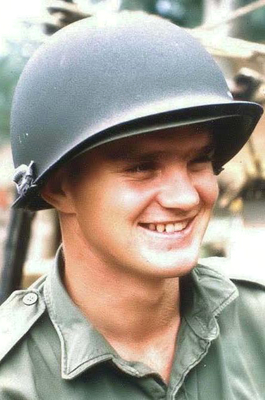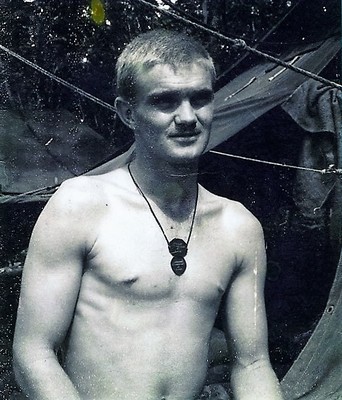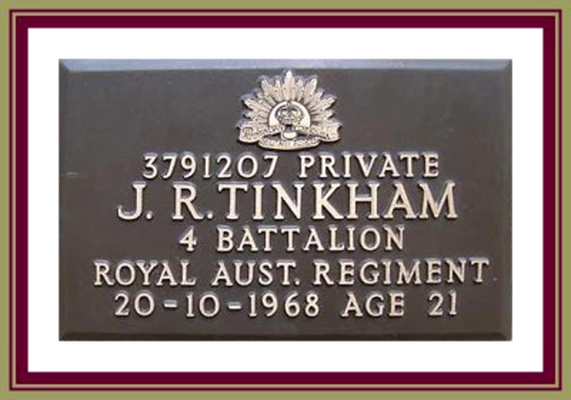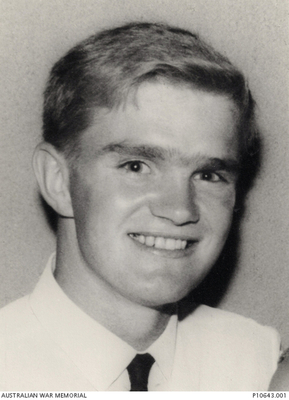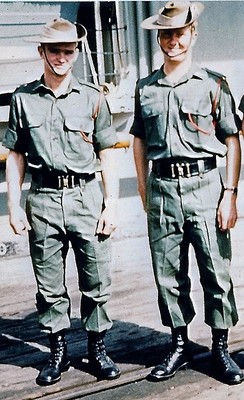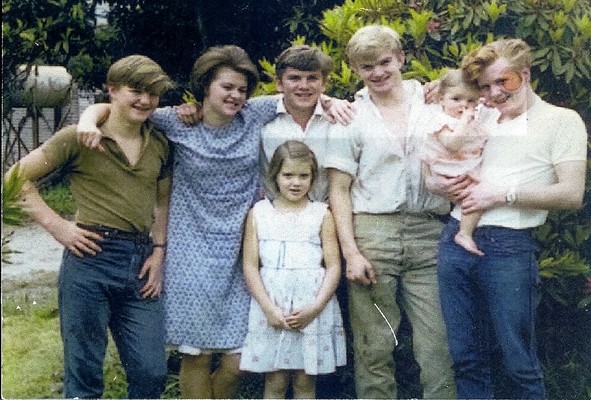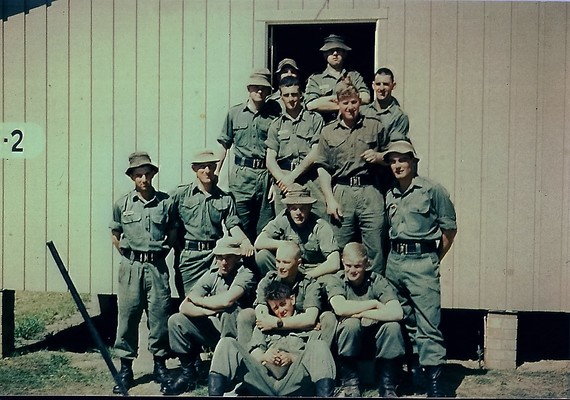By Alana Mitchelson
FALLEN soldier John Richard Tinkham is remembered in the community not only for his bravery in Vietnam but for his strong friendships and “exceptional” football talent.
He grew up on an apple orchard in Tonimbuk as the second eldest of seven children.
Tinkham’s childhood friend and fellow Vietnam War veteran Ross Howell told the Gazette that John had been “really well-loved” by everyone in the district.
“He was a pretty laid back, really happy guy,” Howell said.
“All the Tinkham boys played football for Bunyip but everyone always said John was a particularly fantastic player.
“He also did Bunyip scouts and his father, ‘Uncle Jack’, was the scout leader at the time.
“There was never a harsh word said amongst us, we always got along so well together.”
One of Tinkham’s school peers Margaret Riccardo recalled that he had also been appointed form captain at Drouin High School.
The Tinkhams and the Howells got to know each other during their annual Rosebud camping trips over Christmas during the ’50s and ’60s.
The families have continued to keep in touch ever since.
John Tinkham and Ross Howell were similar ages and became good friends.
A 20-year-old Tinkham had been working as a council clerk for the then Shire of Buln Buln when he was conscripted for National Service, his number 3791207.
Tinkham and Howell enlisted for service together on 19 April 1967 and caught one of the early diesel trains from Bunyip to Flinders Street with nothing but a small bag filled with a few changes of clothes.
“They drove us up to Puckapunyal training camp in central Victoria.
“There were thousands of blokes there and it was a pretty harsh 10 weeks of training, especially the first three or four weeks,” Howell said.
“You couldn’t really say anything because if you got your name known, they sort of hammered you a bit more.”
Howell and Tinkham were both placed in the Royal Australian Regiment’s 4th Battalion and continued specialised training together at the Singleton army base in New South Wales and in Canungra, Queensland, but were later separated when they were sent to different military companies.
Tinkham served 153 days in Vietnam from 21 May 1968 before he was killed in action during Operation Capital in Phuoc Tuy Province on 20 October, a two-phase operation that kept the battalion in the field for 48 days with only a three-day break.
Tinkham had volunteered for the high-risk task of filling in for the forward scout in 12 Platoon, leading a company of about 100 men through the jungle.
He had been inspecting tracks for signs of movement with a tracker team when a single shot from an enemy sniper tragically ended his life.
He was 21 years old.
“I’d been in hospital with malaria at the time and had only just come out of hospital when we had a message come through to our army base of recent casualties,” Howell recounted.
“The guy had a list of names and he didn’t pronounce John’s surname quite right and I just remember grabbing the sheet of paper out of his hands and the shock of seeing his name there. John was killed less than a month short of his 22nd birthday.”
Howell attended a welcome home parade in Sydney in 1987 at which thousands of Australian flags were carried during a march, symbolic of the Australians who had died in Vietnam.
Howell brought John Tinkham’s flag home and presented it to Tinkham’s parents.
John Tinkham was buried at Springvale cemetery among other fallen soldiers in the lawns of remembrance.
Tinkham was one of 60,000 Australians who fought in the Vietnam War and one of more than 500 who lost their lives.
The 50th anniversary of the Battle of Long Tan is on Thursday 18 August and a morning service will be held to commemorate Vietnam Veterans at the Shrine of Remembrance in Melbourne.
For more information, visit www.shrine.org.au/remembrance/ceremonies.

